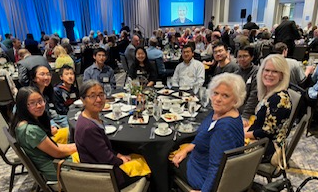Chinese culture roots deep in agricultural society where people learn to adjust well in nature and intentionally become a part of nature. Spring is the season when daytime gets longer, temperature becomes warmer, and animals and plants in dormant state turn active again. While Spring is considered by most people around the world the first of four seasons. Chinese people celebrate the beginning of a year with Spring Festival and dedicates the celebration as the most important holiday of a year.
As four seasons conclude the cycle of a year, Chinese culture records other cycles in observation of nature. The sun always acts the same and is the most dominant celestial body for its impact on earth with light and heat. Yet, the moon has its shape changing in a cycle and is recognized by the Chinese also as a dominant celestial body with its delicate impact on plants, animals, soil, water, moisture in the atmosphere, and heat on earth. Therefore, there are two calendars in the Chinese society, one based on the sun, another the moon, a reflection of Chinese’ respecting the significance of the constant (sun) and the changing (moon) co-existed in celestial and terrestrial world.
Chinese zodiac is a way of counting years in a cycle of twelve, each year recognizing unique dominant elements and characteristics of that year. 2023 is the year of the rabbit which is the fourth animal among twelve describing characteristics of hope, longevity, peace, and prosperity. Another popular way of counting years is the cycle of sixty. To view the position of the year 2023 in both calendars, this particular year of the rabbit is considered a very unusual year, which could mean occurrence of unusual events.
Allowing nature shape people’s lives and worldview exemplifies the inclusive characteristics of the Chinese mindset. Which means that however long standing the Chinese Spring Festival, calendars, and Chinese zodiac have been in history, Chinese welcome dialogues with other culture and worldview including that of Christianity.
So, every January and February we take the opportunities presented by Chinese Spring Festival to introduce the common ground and the differences between Chinese culture and Bible truth, to generate inspiring dialogues and to encourage interest in the Bible and God. For example, while Chinese respect the laws of nature, we ask the question of how did the laws of nature come about in the first place and introduce the concept of origin of nature and the act of creation by a Creator as the Book of Genesis suggests. While Chinese observe cycles in behaviors of nature and designate beginnings to each cycle, we introduce the unique concept that while the Bible also supports natural cycles, yet, there is an end according to the Creator’s plan in which the Creator’s salvation and human history do move forward lineally.
The above is just one sample of our approach to engage Chinese listeners with dialogues about ideas, concepts, and truth between Chinese culture and the Bible. In addition to that approach, we also introduce how Chinese outside of China celebrate the Spring Festival, including Chinese who attend church. Besides that, common concerns about the war in Ukraine and the pandemics continue to provide us with material and opportunities to show to our listeners how do Christians view these crises according to the Creator’s plan and respond to the need of victims from the perspective of the Bible truth.
Categories: CHINESE


